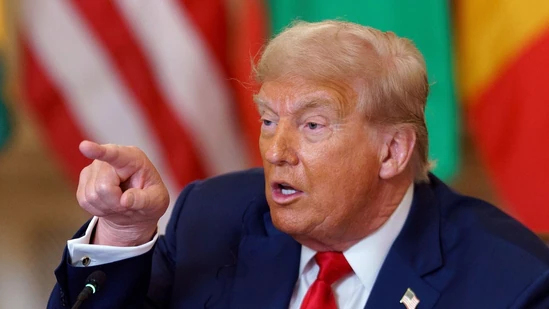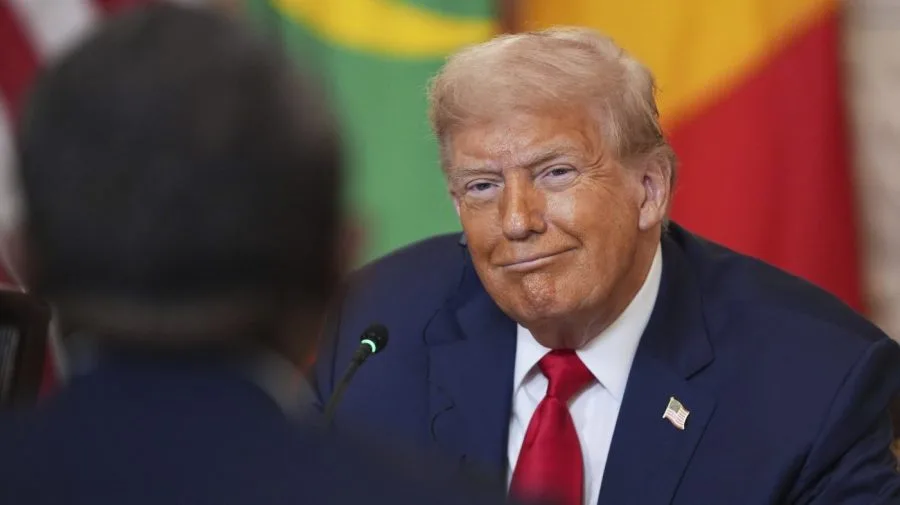In a dramatic and controversial move, former U.S. President Donald Trump has pledged a steep 50% tariff on Brazilian imports, vowing full support for ex-Brazilian President Jair Bolsonaro. The announcement sent shockwaves through international trade markets and reignited debates over economic nationalism, political loyalty, and global diplomacy.
This pledge, though not currently enforceable due to Trump’s non-incumbent status, is being seen as a political signal with significant consequences for U.S.-Latin American relations and global trade dynamics. Here’s a deep dive into the implications of Trump’s 50% tariff on Brazil, the reasoning behind it, and what it means for both countries—and the world.
Why Did Trump Pledge a 50% Tariff on Brazil?
Donald Trump’s announcement came during a rally in Florida, where he addressed a crowd of thousands. During his speech, he strongly criticized current U.S. foreign policy and accused the Biden administration of abandoning American allies.
He stated:
“The radical left wants to isolate and destroy strong leaders like Jair Bolsonaro. But I won’t let that happen. When I return to the White House, we will put a 50% tariff on Brazilian imports if Brazil does not protect its democracy and Bolsonaro.”
Trump’s comments were met with loud applause from his supporters. The move is largely symbolic for now, but political experts believe it reflects his commitment to reshaping U.S. foreign policy through tough trade measures and personal alliances.
Trump and Bolsonaro: A Political Brotherhood
The relationship between Donald Trump and Jair Bolsonaro has been well-documented. Both leaders rose to power on populist platforms, often railing against the media, the establishment, and what they call “globalist elites.”
Bolsonaro, often referred to as “Trump of the Tropics,” supported Trump during his presidency and after the 2020 election. Trump, in turn, has defended Bolsonaro against accusations of election interference and corruption.
Their political bond is based not just on ideology but mutual admiration and a shared disdain for left-leaning governments. Trump’s pledge of a 50% tariff on Brazil is seen as a defense mechanism to protect his political twin from what he calls “globalist attacks.”
What Would a 50% Tariff on Brazil Mean?

Imposing a 50% tariff on imports from Brazil would be a major shake-up in U.S.-Brazil trade relations. Brazil is a key trading partner for the U.S., supplying everything from agricultural products to industrial goods.
Key Brazilian Imports to the U.S.
- Steel and iron
- Agricultural products (soybeans, coffee, beef)
- Minerals (such as iron ore)
- Machinery and electronics
A 50% tariff would make these goods significantly more expensive for American businesses and consumers. Prices of Brazilian coffee, meat, and raw materials could skyrocket, leading to inflationary pressure.
Economic Impact
- U.S. importers might seek alternative markets, increasing trade with countries like Argentina, India, or Vietnam.
- Brazilian exporters would face huge losses unless they find other global buyers.
- Industries relying on Brazilian steel or agricultural imports may cut jobs or raise prices.
The Political Message Behind the Tariff
While the economic fallout could be serious, many analysts believe Trump’s primary goal is political.
By threatening the 50% tariff on Brazil, Trump sends a signal that:
- He supports Bolsonaro and his vision for Brazil.
- He is willing to punish nations that do not align with his political allies.
- He is ready to return to his “America First” trade policies if re-elected.
This mirrors Trump’s previous actions with China, the European Union, and even allies like Canada and Mexico—where tariffs were used as leverage, not just economic tools.
Brazilian Reaction: Government and Business Push Back
In response to Trump’s announcement, Brazilian officials expressed “deep concern” over the proposed tariff. The Brazilian Ministry of Foreign Affairs released a statement calling the pledge “an act of economic aggression that could severely harm bilateral relations.”
Brazilian business leaders have also voiced fears. Many worry that Trump’s influence in the U.S. could bring instability to trade agreements even before he returns to power.
One senior executive in Brazil’s steel industry said:
“Even if he is not president now, Trump’s words shake investor confidence. A 50% tariff would be catastrophic for thousands of Brazilian workers.”
American Business Community Reacts

U.S. business leaders, particularly those in agriculture, food processing, and construction, also voiced concern.
National Association of Manufacturers President Jay Timmons said:
“American companies need stable, predictable trade policies. Tariffs like these hurt not just foreign suppliers but domestic industries too.”
Many companies fear the uncertainty that comes with Trump’s bold, unilateral trade threats. Tariffs can lead to retaliatory measures, disruption of supply chains, and higher consumer prices.
Could Trump Legally Enforce a 50% Tariff?
As of now, Donald Trump holds no executive power. But if he wins the 2024 presidential election, he could enact tariffs without needing congressional approval in some cases.
Under Section 232 of the Trade Expansion Act, a president can impose tariffs for national security reasons. Trump used this provision in 2018 to levy steel and aluminum tariffs.
Another option is Section 301 of the Trade Act of 1974, which allows tariffs in response to unfair foreign trade practices.
While courts and Congress could challenge extreme measures, Trump has shown willingness to push legal boundaries.
What This Means for Global Trade
Trump’s proposal fits into a broader trend of increasing protectionism. The global consensus on free trade is weakening, with many countries taking a more defensive stance.
If the U.S. imposes a 50% tariff on Brazil, other nations may follow suit, leading to:
- A rise in trade wars
- Slower global economic growth
- Fragmentation of supply chains
Additionally, this could further isolate the U.S. from traditional allies, as other countries seek to form trade blocs excluding American influence.
Public Opinion: Divided Once Again
As expected, Trump’s announcement divided public opinion sharply along political lines.
Trump supporters praised the move as a bold stand against globalism and a necessary step to protect democracy in Brazil.
Critics, however, labeled it dangerous and irresponsible, warning that such tariffs could hurt ordinary Americans and destabilize international relations.
On social media, the hashtag #TrumpTariff quickly trended, with memes, debates, and economic projections flooding platforms like X (formerly Twitter) and Facebook.
The Bolsonaro Factor: Why Trump Is Taking This Stand
Jair Bolsonaro is currently facing multiple investigations and is banned from running for office until 2030. However, his popularity in Brazil remains strong among conservative voters.
Trump’s support may be aimed at:
- Reinforcing Bolsonaro’s image as a victim of political persecution
- Drawing parallels between Bolsonaro’s and his own legal battles
- Rallying Latin American conservatives under a unified, Trump-aligned vision
Some believe Trump may even be positioning Bolsonaro as a key ally in a broader international populist movement.
Final Thoughts: A Symbolic War or a Real One?
While Trump’s pledge to impose a 50% tariff on Brazil is not currently enforceable, it is far from meaningless. It represents a warning shot, a political statement, and possibly a glimpse into what U.S. trade policy could look like under another Trump presidency.
Whether or not this tariff materializes, it has already stirred global debate, strained U.S.-Brazil relations, and reminded the world of how unpredictable—and powerful—Donald Trump remains in international politics.
Read Next – Is Elon Musk’s Fight for a New Third Party an Insurmountable Thing?






